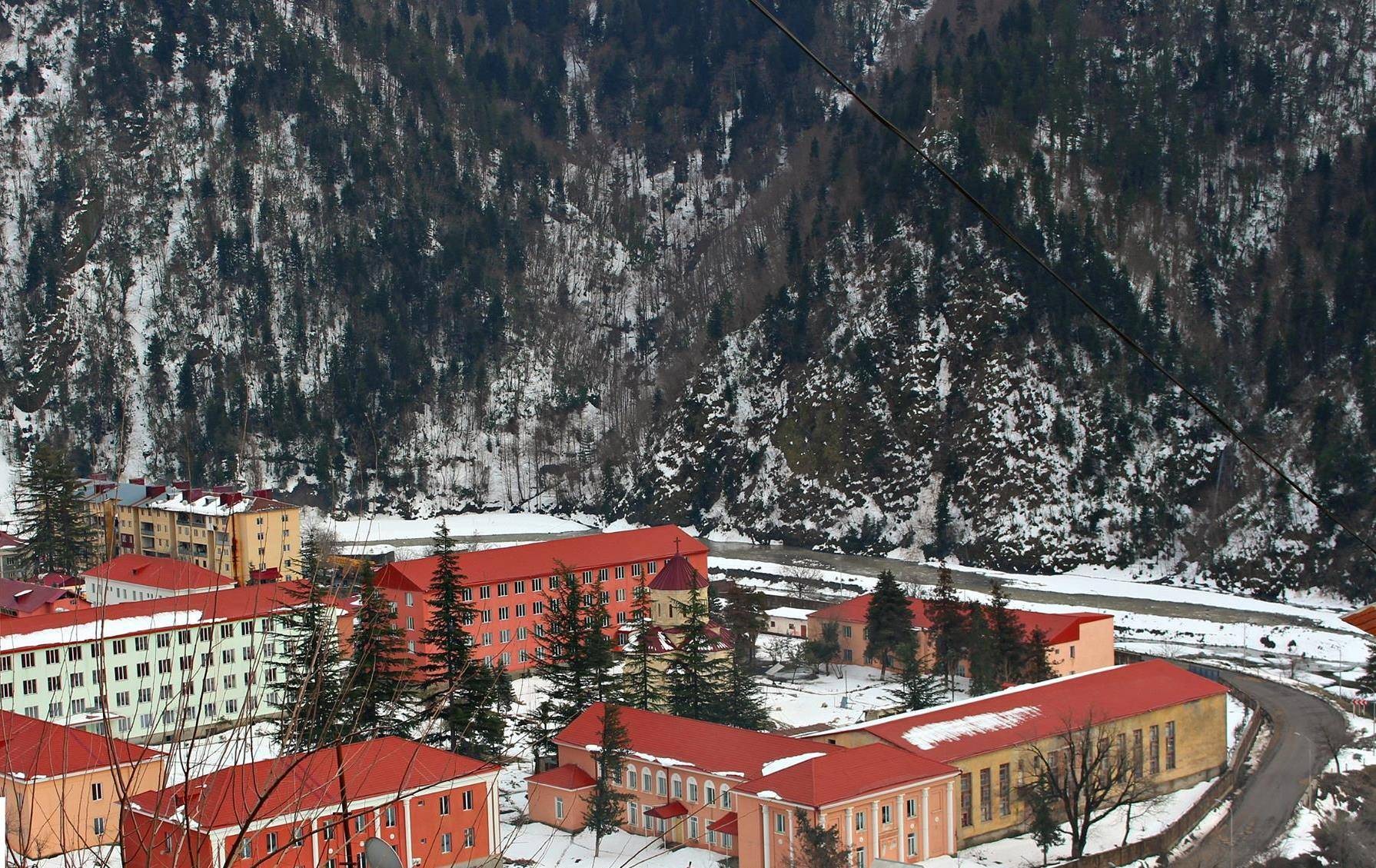საერთო ცხელი ხაზი +995 577 07 05 63


Photo: The Patriarchy of Georgia St. Tbel Abuseridze Teaching University
Human Rights Education and Monitoring Center (EMC) responds to the possible abuse of religious neutrality by Keda Municipality school Principals and calls upon the Ministry of Education to study the practice of excessive and illegal influence of Patriarchy on the State educational system in Adjara and to adopt adequate and effective measures in order to ensure the indestructible protection of religious neutrality, equality and inclusivity principles.
On 30th of October, 2019, a video recording was released on the Facebook page of the eparchy of Skhalta Apostolic Autocephalous Church of Georgia depicting a meeting of the religious authorities of Skhalta Eparchy, the professors of St Tbel Abuseridze Teaching University and of Keda Municipality high school teachers. According to the video recording, the meeting took place in Keda Resource Center and discussed the celebration of the Day of Allotment to Mother Mary. At the meeting, the religious authorities as well as the academic staff of the university, exposed a large historical review on the expansion of Christianity in Georgia, predominantly presented from the confessional and unscientific perspective. The speakers emphasized strongly on the special role of the Adjara region in Georgia’s conversion into Christianity. During the meeting, religious authorities obliged the high school principals to transfer knowledge about Adjara’s Christian past at schools, the latter being approved by some of the high school principals in the following media commentaries. For instance, the high school principal of the village October declared in a media interview that they (including high school principals) have a duty to deliver the discussed issues to the pupils to “convert them and return to their ancient faith”. The principal also noted that they were promised by the clergy on upcoming meetings with students for the same purpose. The high school principal of the village Dandalo mentions that Georgia survived thanks to the dedication of the Church and this very “miracle” is the reason why Georgia is still standing alive today.
It is clear that by the organizational help of local Resource Centers and by using their administrative resources, the participation of the principals of public schools in the event of mainly confessional character, where the principals speak publicly about the conversion of students into orthodox beliefs and the importance of the revival of Christianity, abuses the constitutionally recognized principle of religious secularism and strict demands of the Law of Georgia on “General Education” on the independence of public schools from religious associations (Law of Georgia on “General Education”, Article 3, paragraph 2, (c) ) and also violates prohibition of the use of religious indoctrination, proselytizing or compulsory assimilation in the public school learning process (idem. Article 13, paragraph 2). The order of the Ministry of Education and Science of Georgia on “Approving the code of ethics of the school principal” also indicates the prohibition for religious propaganda by the principles and on the obligation to treat equally the representatives of any religion.
It must be noted that establishing the Allotment to Mother Mary day-off gave an incentive to the new wave of religious indoctrination among public school teachers. For instance, the society is informed about the events cycle in June concerning the Allotment to Mother Mary festivities planned for high school teachers. Those events were being carried out according to the orders issued by the Regional Resource-Centers and by on behalf of the Ministry. High school teachers were briefed with fundamentally confessional lectures on the Day of Allotment to Mother Mary. Similar cases were observed in locations, where the majority of teachers were of Muslim faith (for example in Tsalka). It is also noteworthy, that the religion-motivated oppression of Muslim students in Adjara in previous years was mentioned in Public Defender’s report as well.
The content and the rhetoric of the meeting on October 30th is the continuation of the narrative which marginalizes the Georgian Muslim Community of the Highlands of Adjara and is an example of the aggressive and isolationist policy of Christianity revival. Unfortunately, this aggressive policy of the indoctrination of Georgian Muslims, nurtured by the Patriarchy in Adjara since independence, is supported by the political authorities. St. Tbel Abuseridze Teaching University, which maintains this policy in Muslim populated Highlands of Adjara and is funded from the state budget on a regular basis, serves as the brightest example. The 30th October meeting demonstrated the alarming process of the implication of high school principals in this course of indoctrination and their use as “religious agents”, which is problematic not only because of the abuse of Muslim students right and the risks of their isolation but it is problematic for the foundation of inclusive political and social environment in the whole region for the local Muslim community, which is a state responsibility.
The State authorities need to realize (regions populated by religious/ethnic minorities in particular) the importance of neutral religious policies, which in greater deal represents an axis of democratic and inclusive political system construction and abuse of this policy might give way to the feeling of exclusion and non-rightfulness in minority groups.
Based on the aforementioned facts, we address to the Ministry of Education of Georgia as well as of Adjara:
The website accessibility instruction